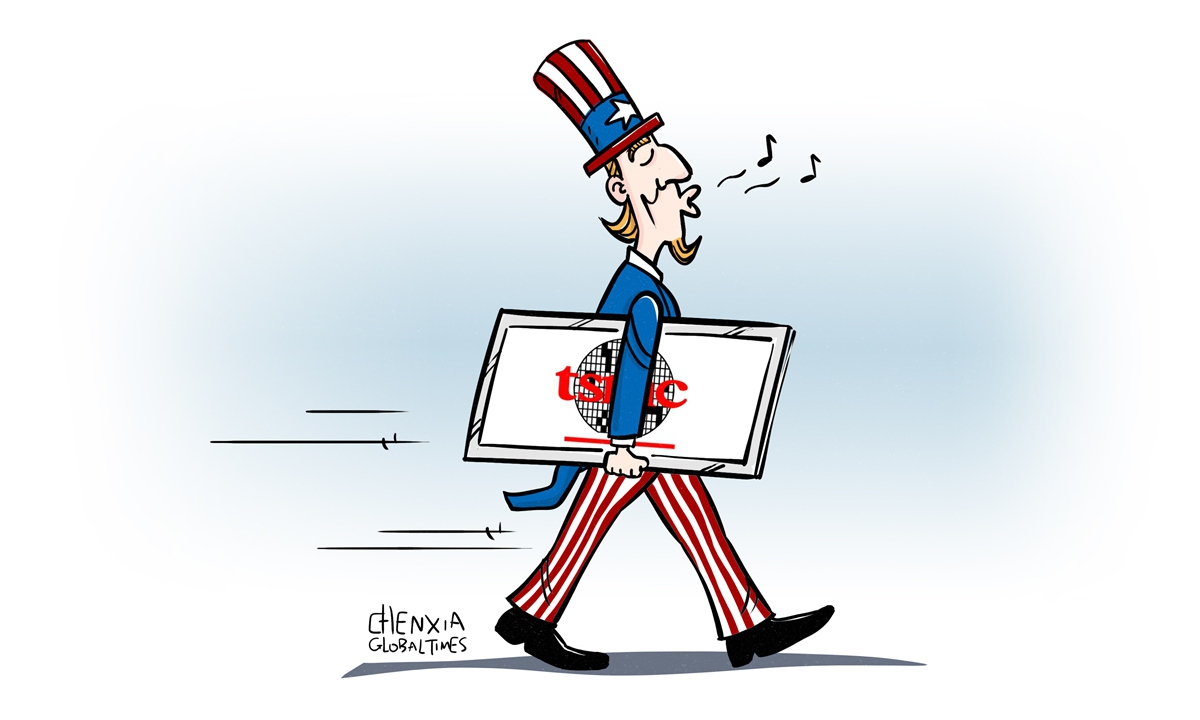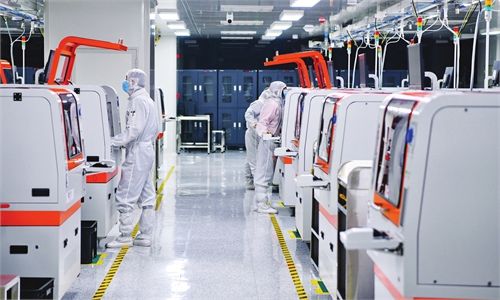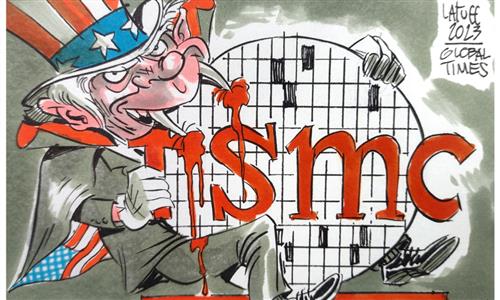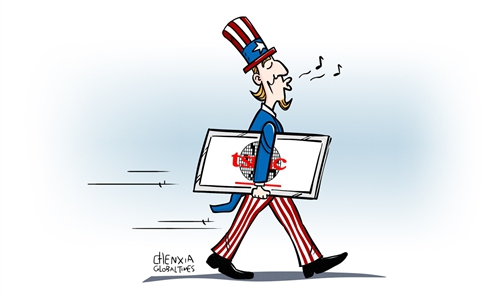
Illustration: Chen Xia/Global Times
The 7.3 magnitude earthquake that hit the sea area near Hualien in China's Taiwan region on Wednesday has triggered Western media hype about the vulnerability of global chip supplies, a microcosm of the mounting pressure on the region's chipmaking industry to move out of the island.While Taiwan's semiconductor companies including Taiwan Semiconductor Manufacturing Co (TSMC), the world's largest maker of advanced chips, appear to have emerged largely intact, Western media coverage seems to be more interested in justifying the transfer of chip production capacity out of the island.
For instance, Bloomberg on Friday ran an article headlined "Taiwan Earthquake Raises Stakes for Solution to Chip Dominance," while a CNN report, headlined "The Taiwan earthquake is a stark reminder of the risks to the region's chipmaking industry," claimed on Thursday that the natural disaster "will likely only add pressure to efforts underway for years to grow chipmaking capacity outside of Taiwan."
It is well recognized that Taiwan plays a crucial role in global chip manufacturing, with the stability of its industry having a significant impact on the worldwide electronics supply chain. However, the concentrated coverage and analysis by Western media outlets on how fragile the region's chip supply chain is may point to a concerning trend: the accelerated hollowing-out of Taiwan's economy.
It is not news that the island is located in one of the world's most active earthquake zones, but it is uncommon to see media outlets use a quake as an excuse to call for diversifying the chip industry chain in the US and Europe.
Such coverage underscores the growing demand for and reliance on chips, and it also reflects anticipation of changes that will see the US continue to hollow out the Taiwan island.
Washington has made no secret of its interest in obtaining advanced chip manufacturing capacity from the Taiwan island. Political pressure from Washington and subsidies and inducements are closely related to the construction of TSMC's plant in the US state of Arizona. This quake has certainly given the US more excuses to step up pressure on TSMC and other semiconductor companies in Taiwan.
At a time when the world's major economies have attached great importance to the semiconductor industry, the US may only be a leading power among those looking to prey on the transfer of high-tech industrial chains from the Taiwan island. In addition to the plant in Arizona, TSMC opened its first semiconductor plant in Japan in February, and is likely to build its first European plant in Germany, according to media reports.
The chip industry is a crucial pillar of Taiwan's economy, with TSMC serving as its core. The semiconductor industry accounted for 13-15 percent of Taiwan's GDP in recent years. Under such circumstances, the global expansion of TSMC will affect the island's chip dominance and tech prowess, and the biggest danger for Taiwan's economy is whether it can keep TSMC's core research and development in the island. This is because Taiwan's economic development heavily relies on exports of high-tech products, and any weakening of this advantage would pose significant challenges to its sustainable growth.
Unfortunately, it is unlikely for the people of Taiwan to expect the Democratic Progressive Party (DPP) authorities to find a way to stop the transfer of local talent and high-tech production capacity. As the past has shown, the DPP authorities seem more interested in trading the semiconductor sector and the island's other economic interests for their own political capital. The wealth accumulated by Taiwan society has been gradually squandered by the DPP as a bargaining chip to flatter Washington.
While TSMC's executives have claimed the company's top tech would stay in Taiwan, there are many things that can be out of the control of companies. Whether the DPP authorities, amid pressure or speculation over increased transfers of local chipmaking capacity, will again use TSMC as a gift to collude with the US or Japan deserves close attention.



